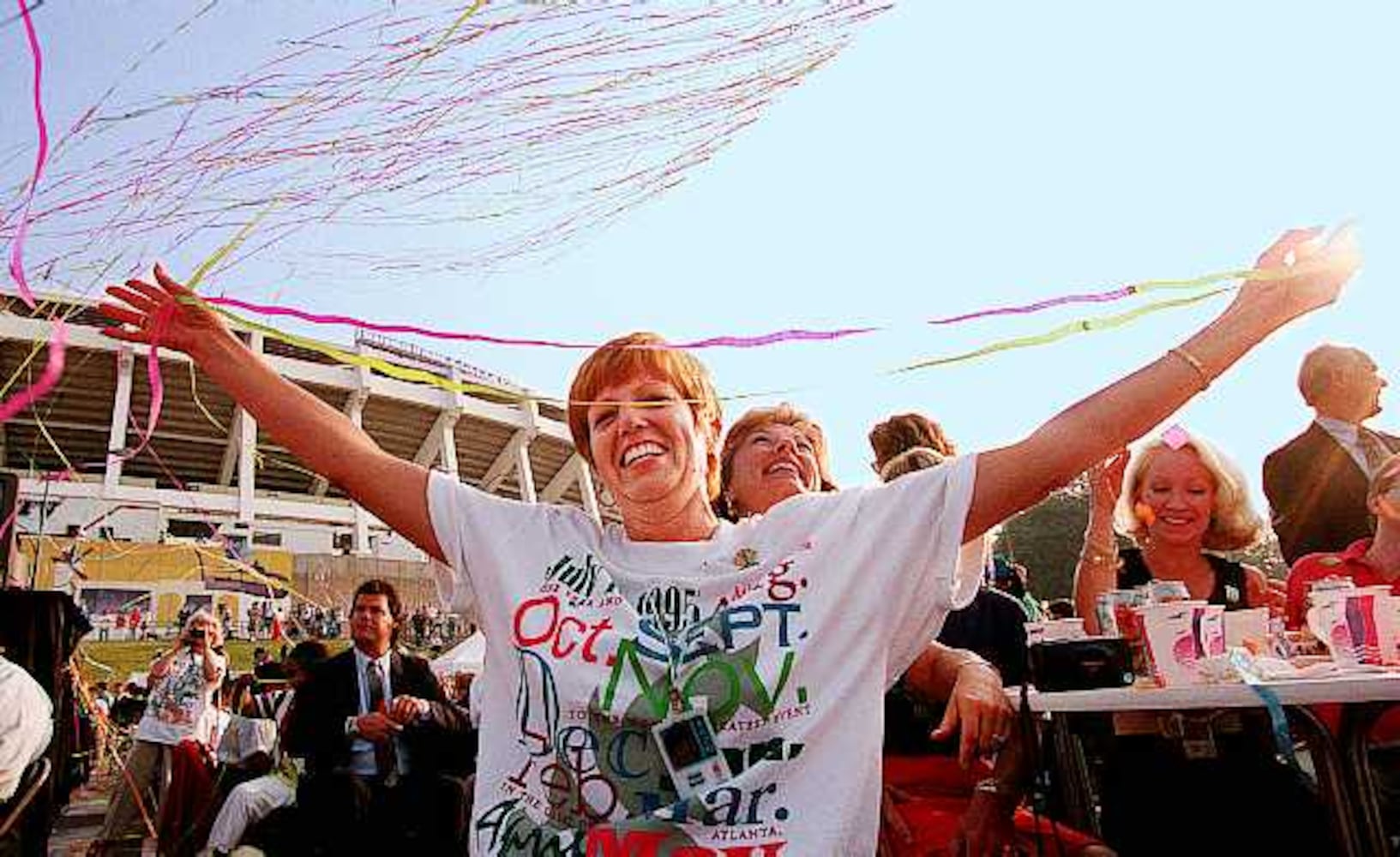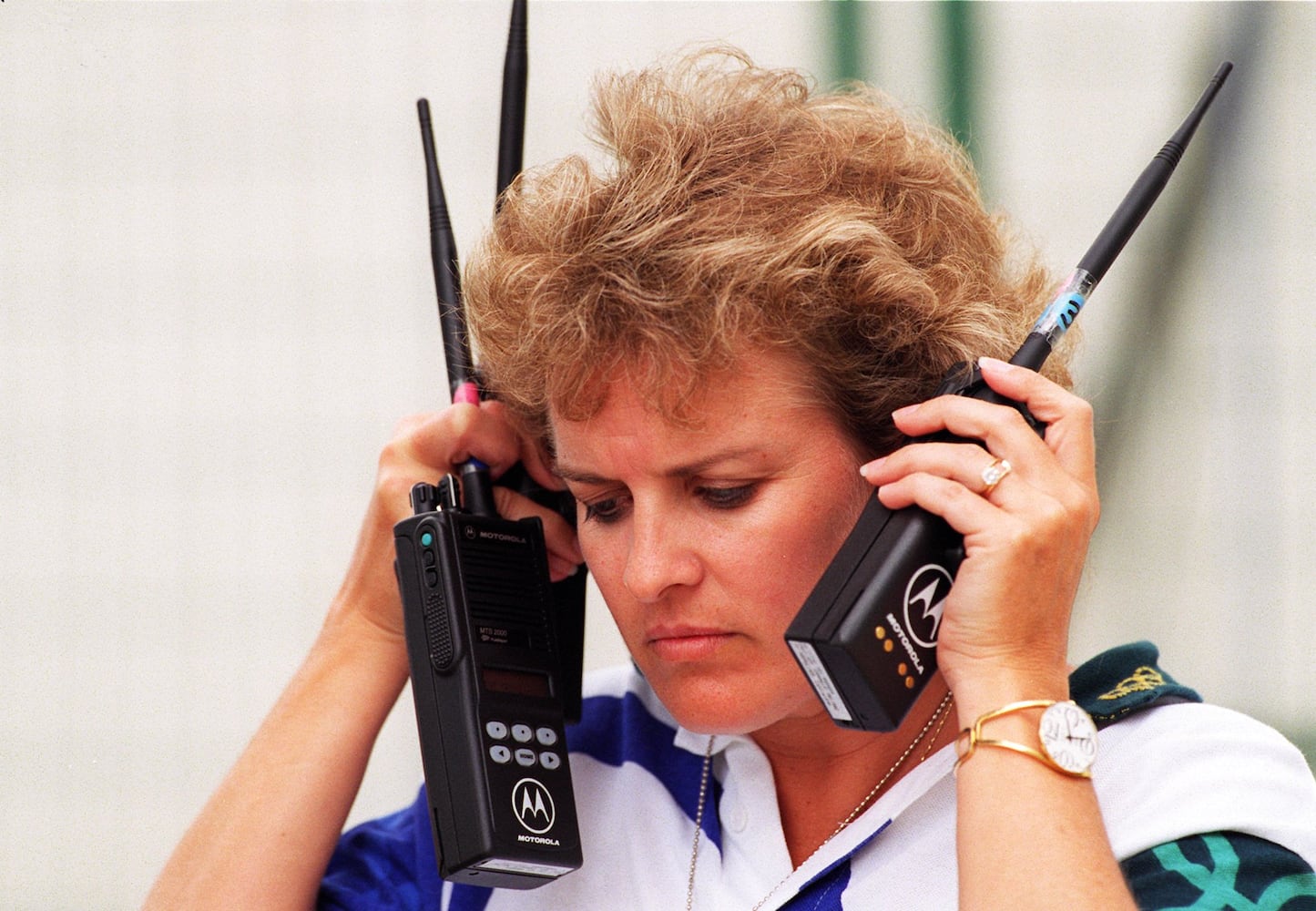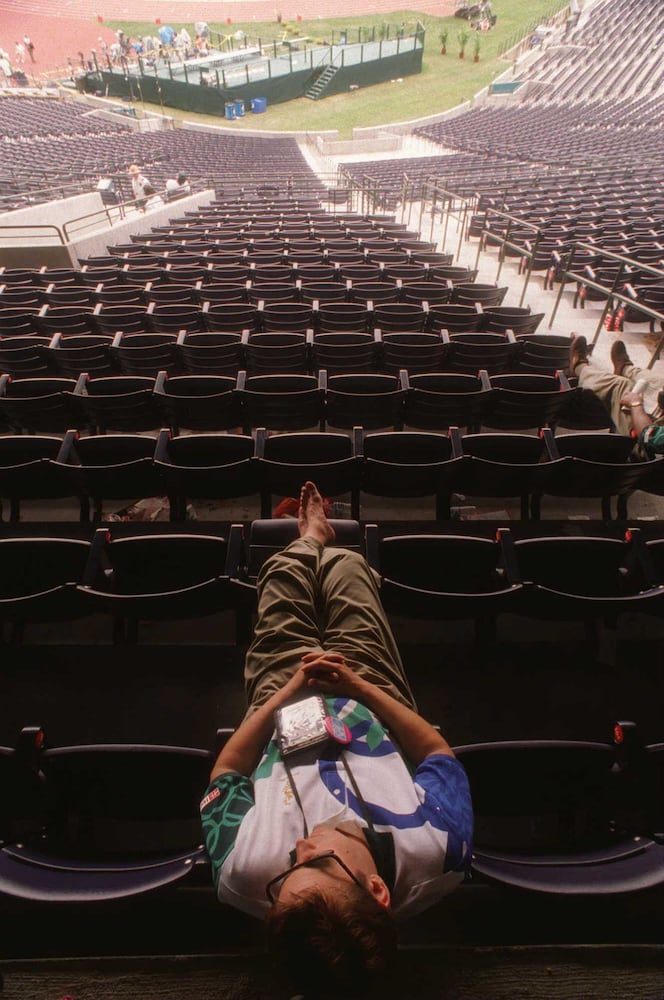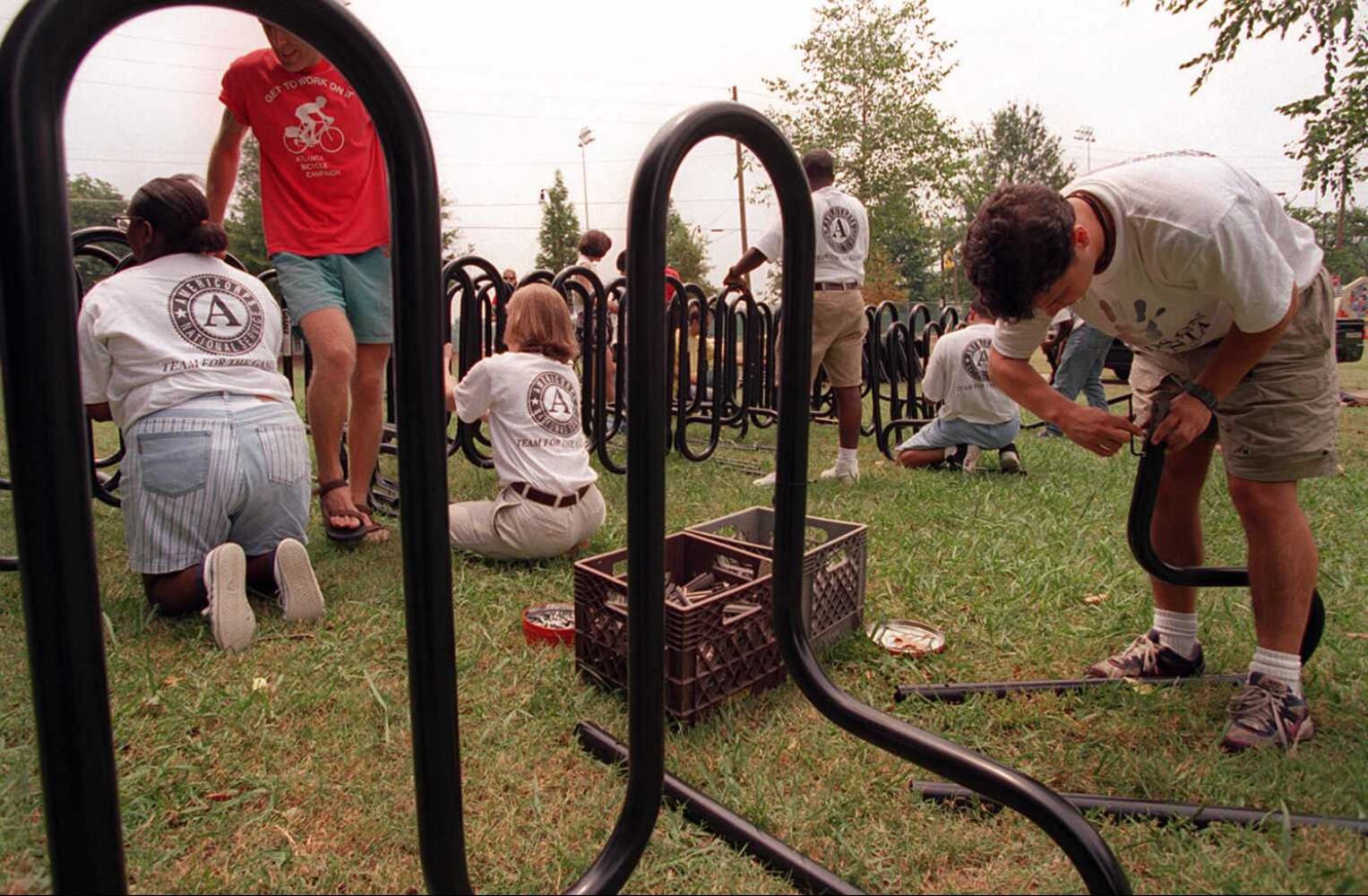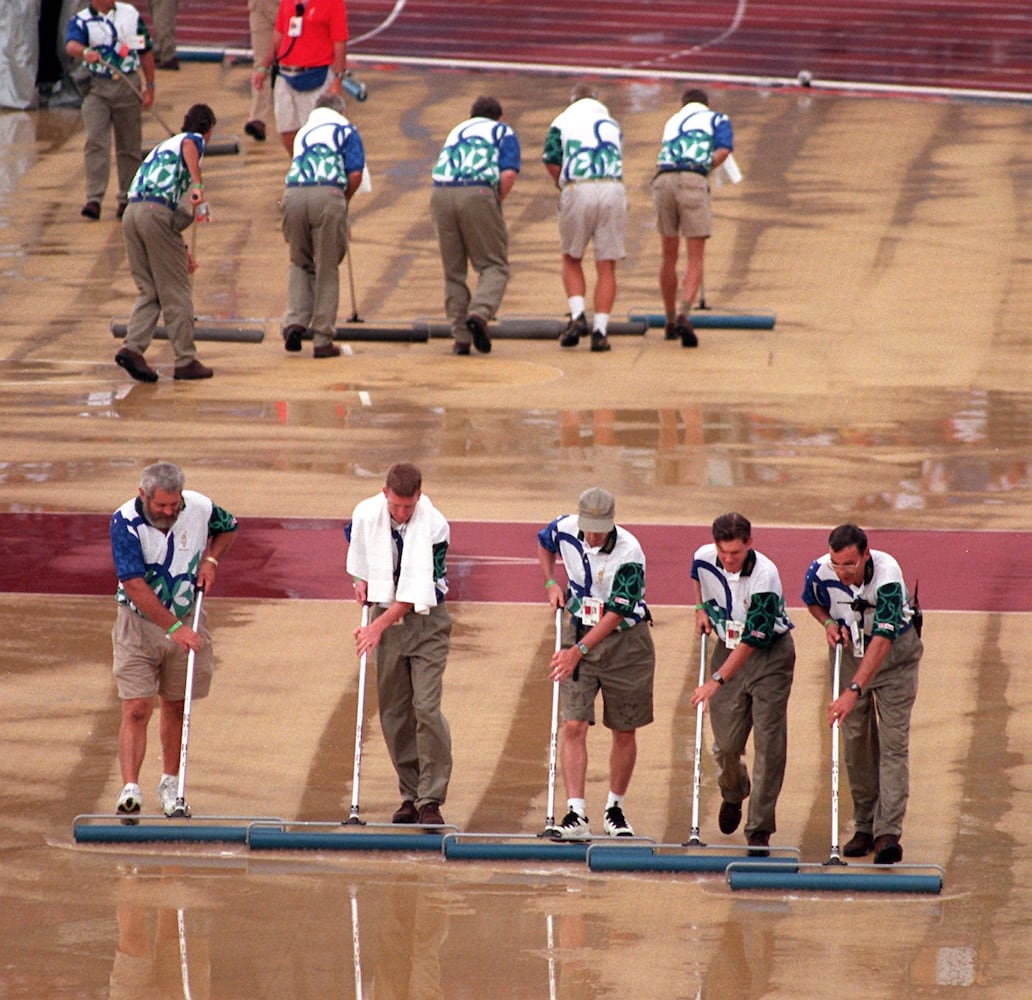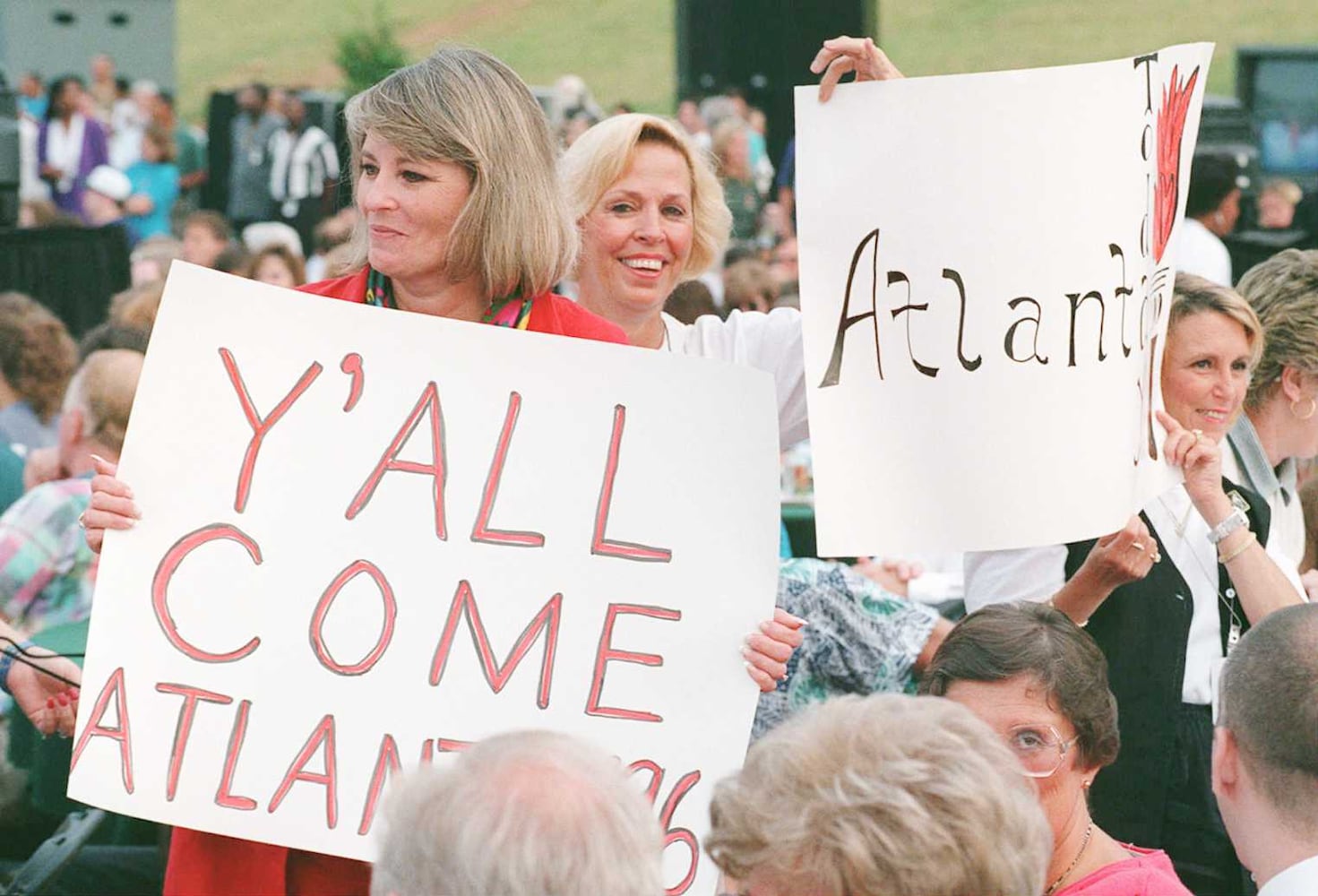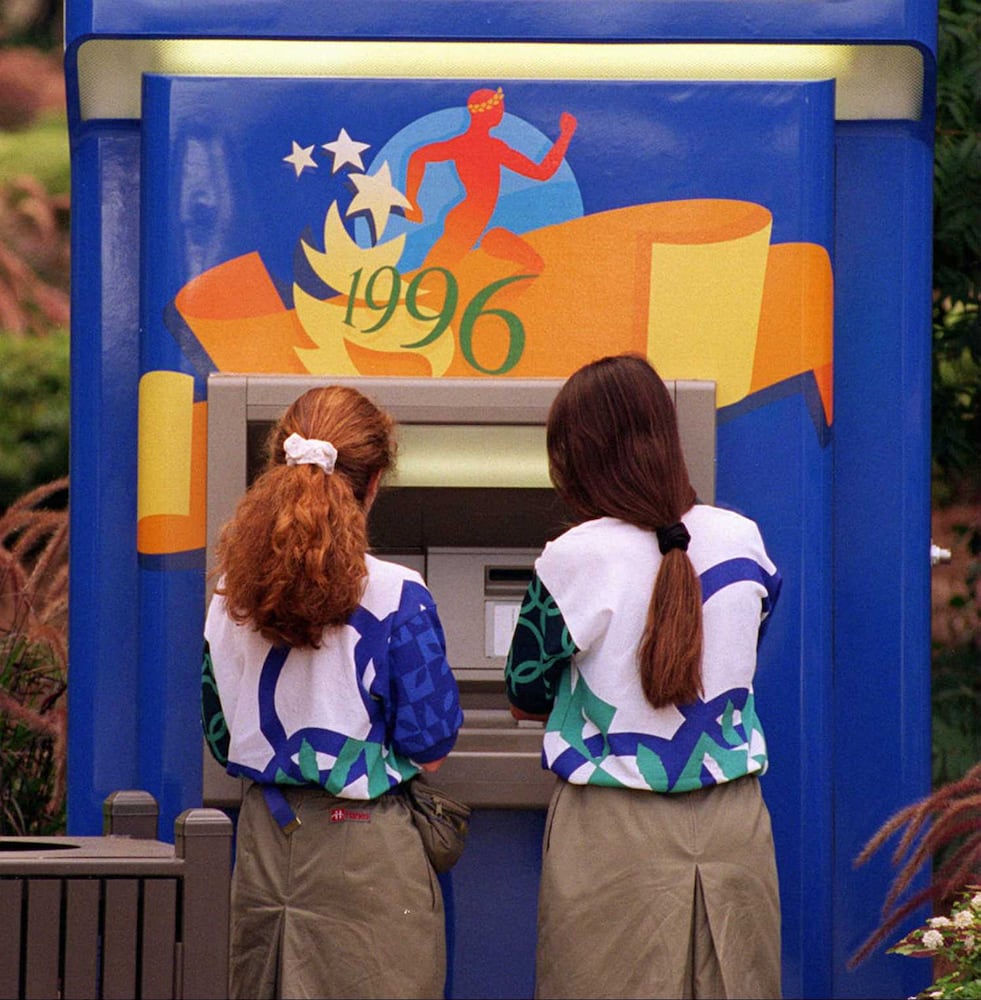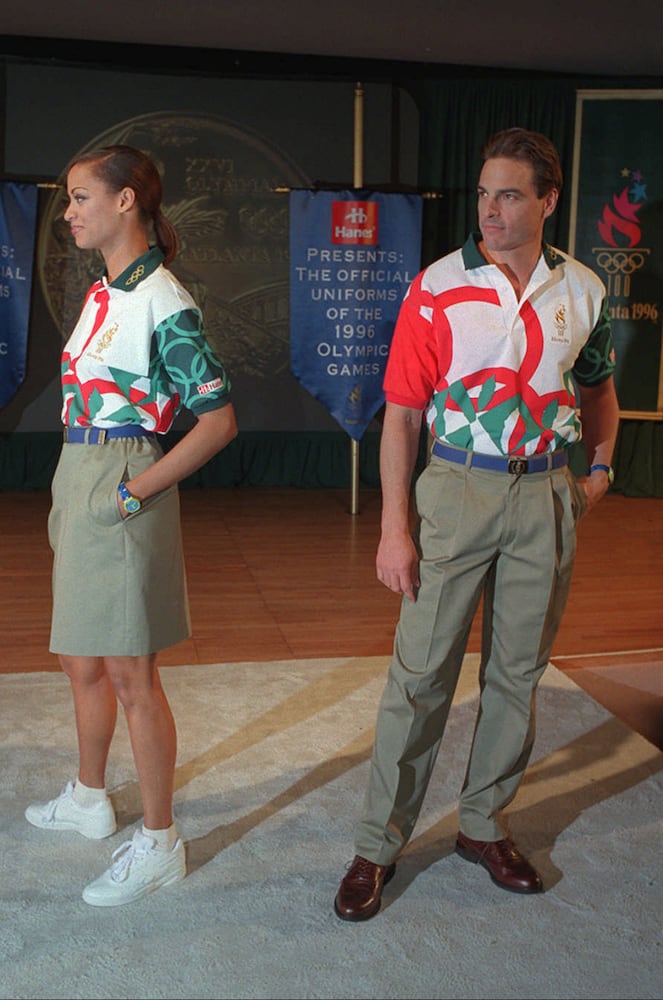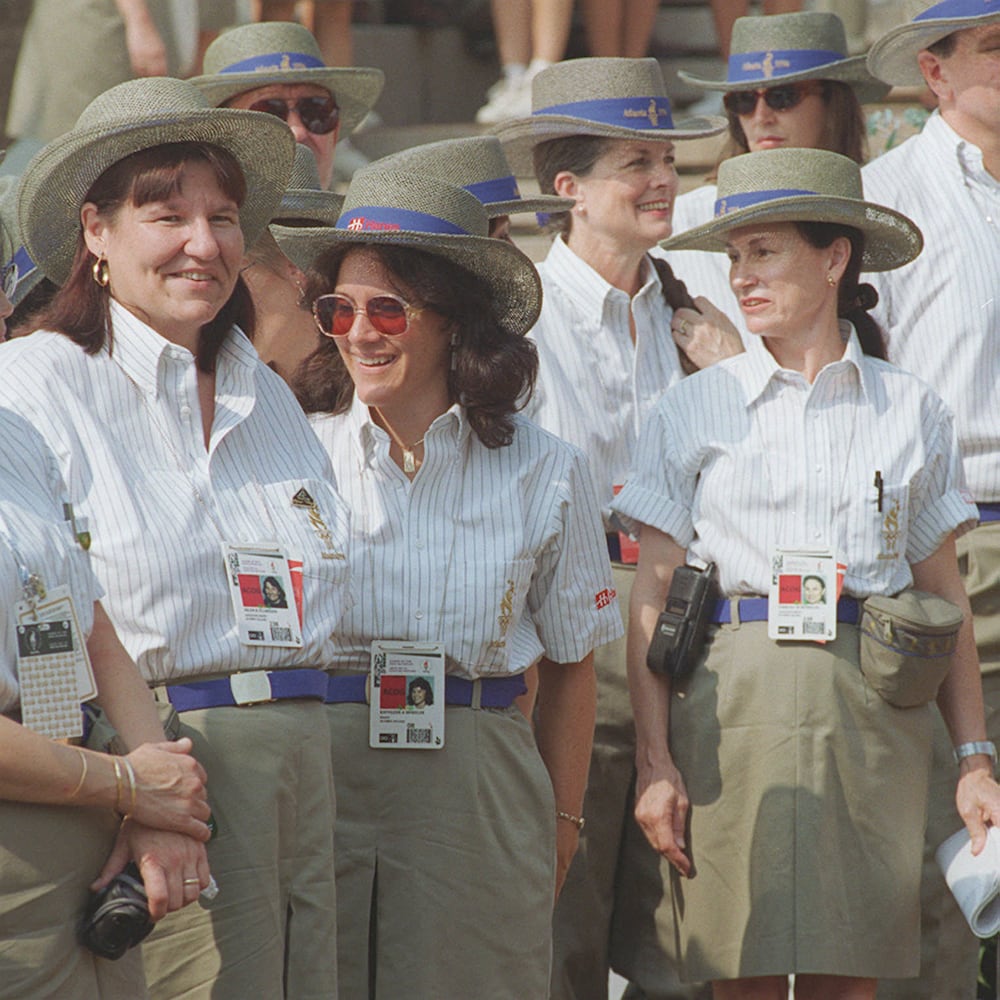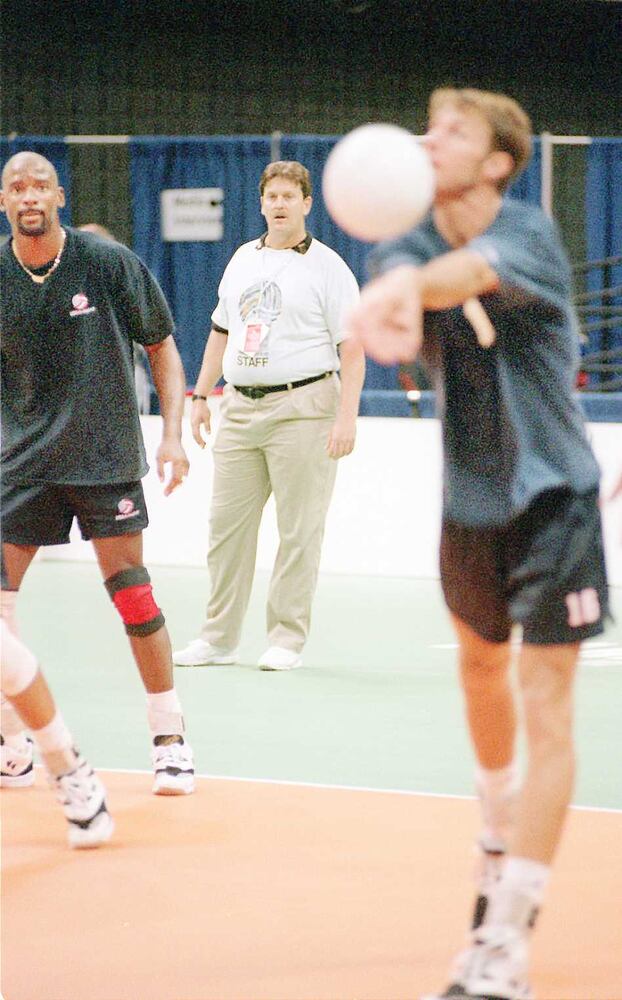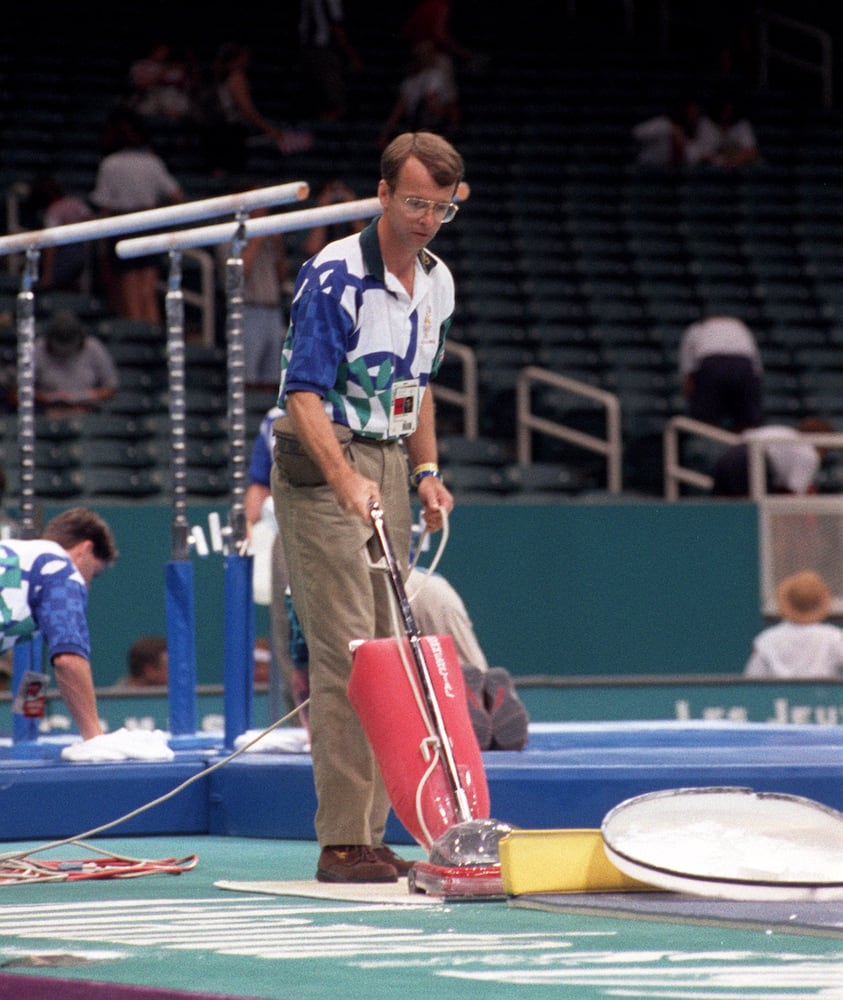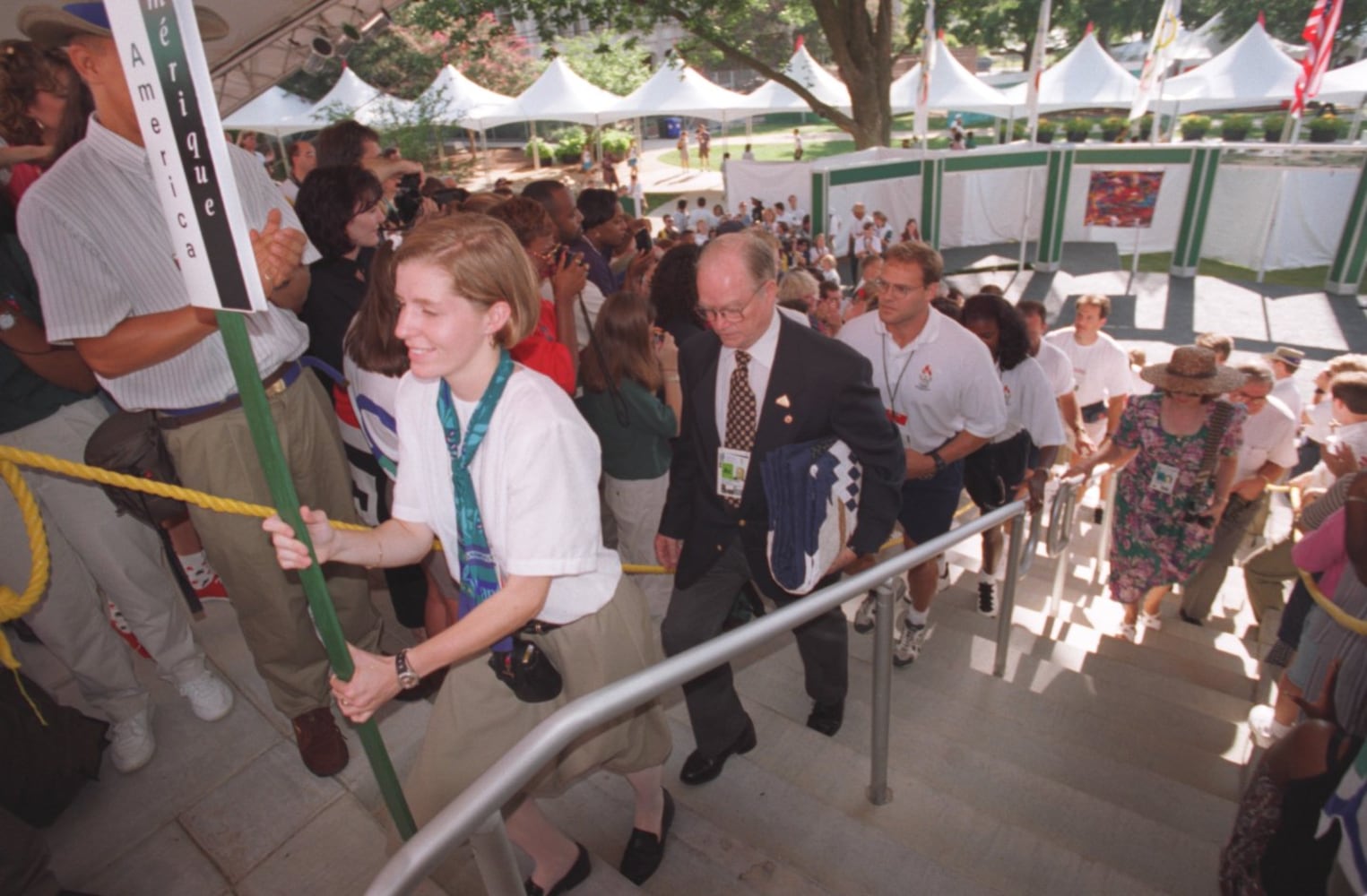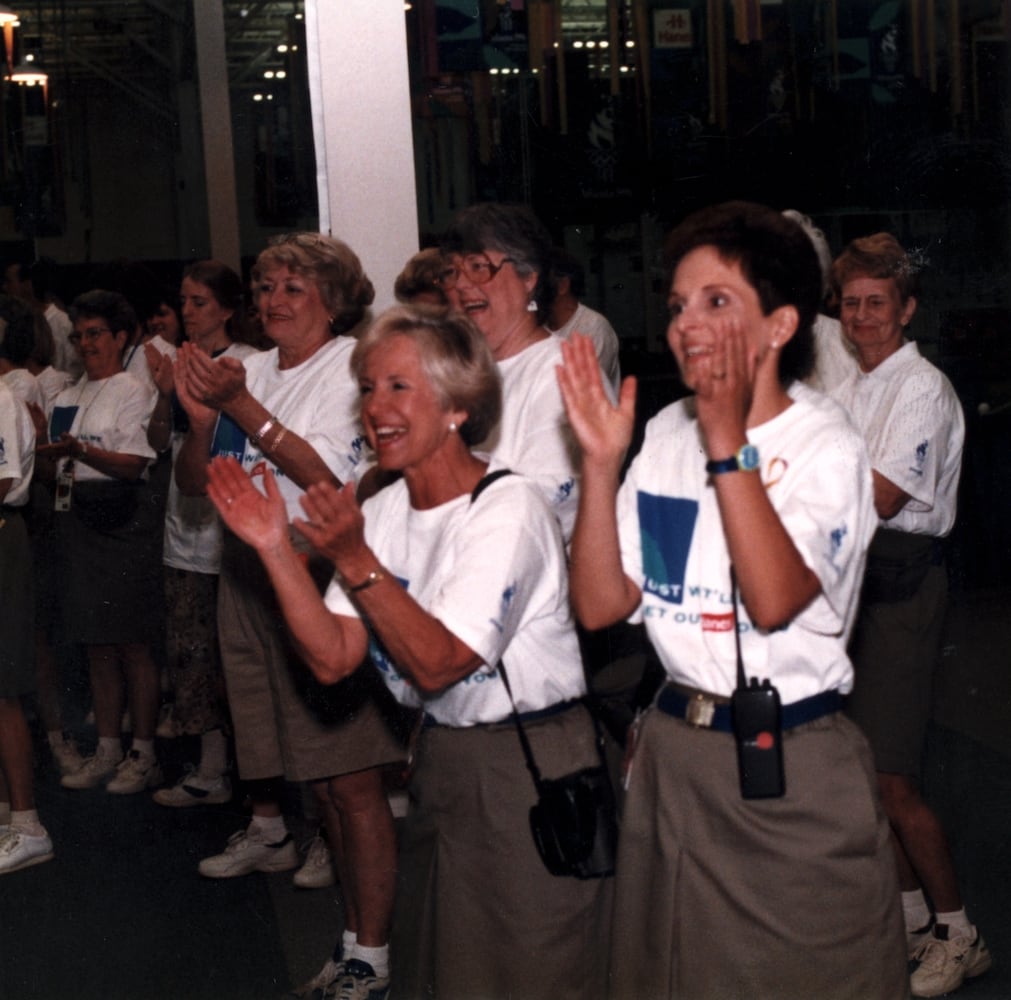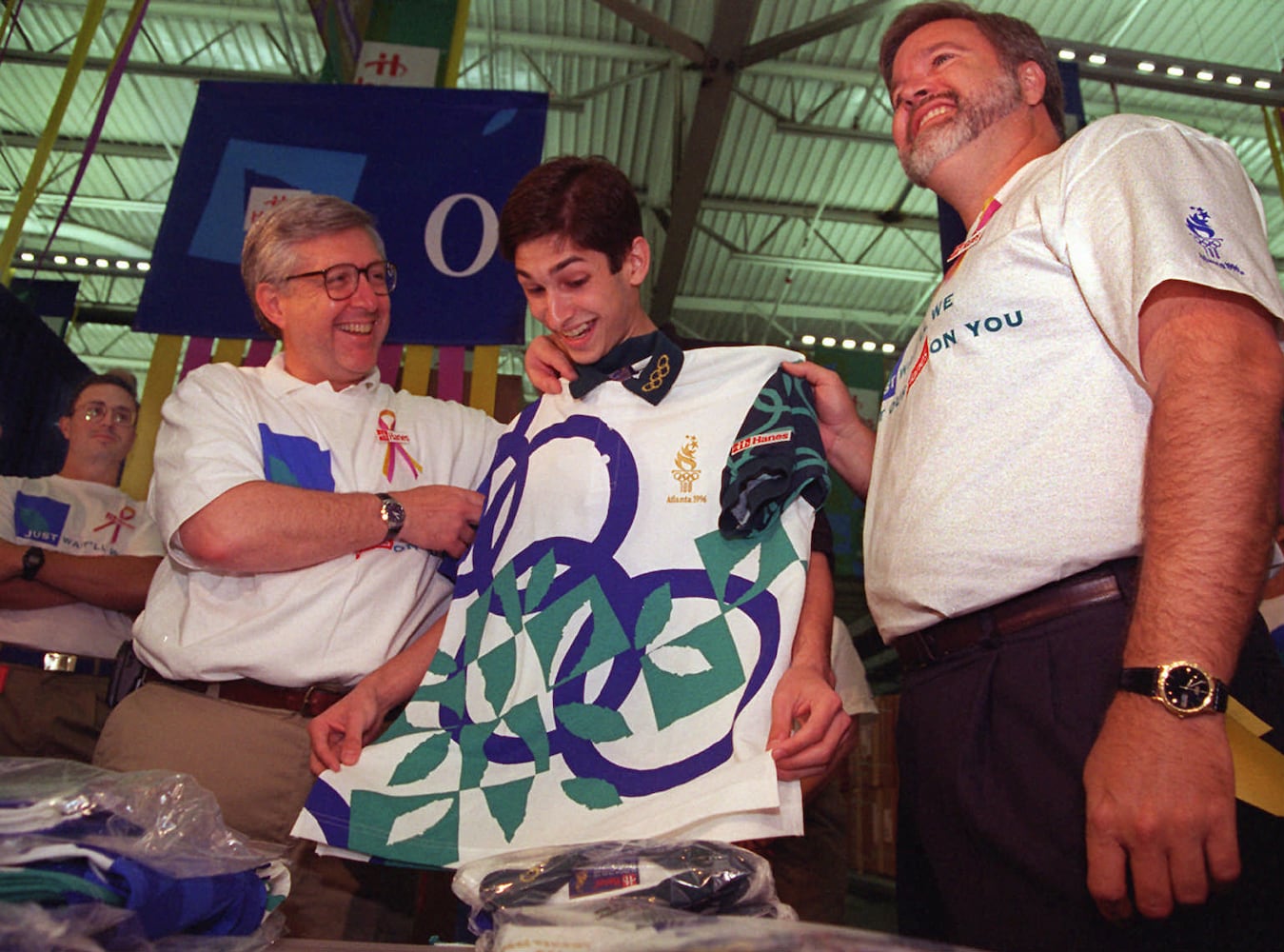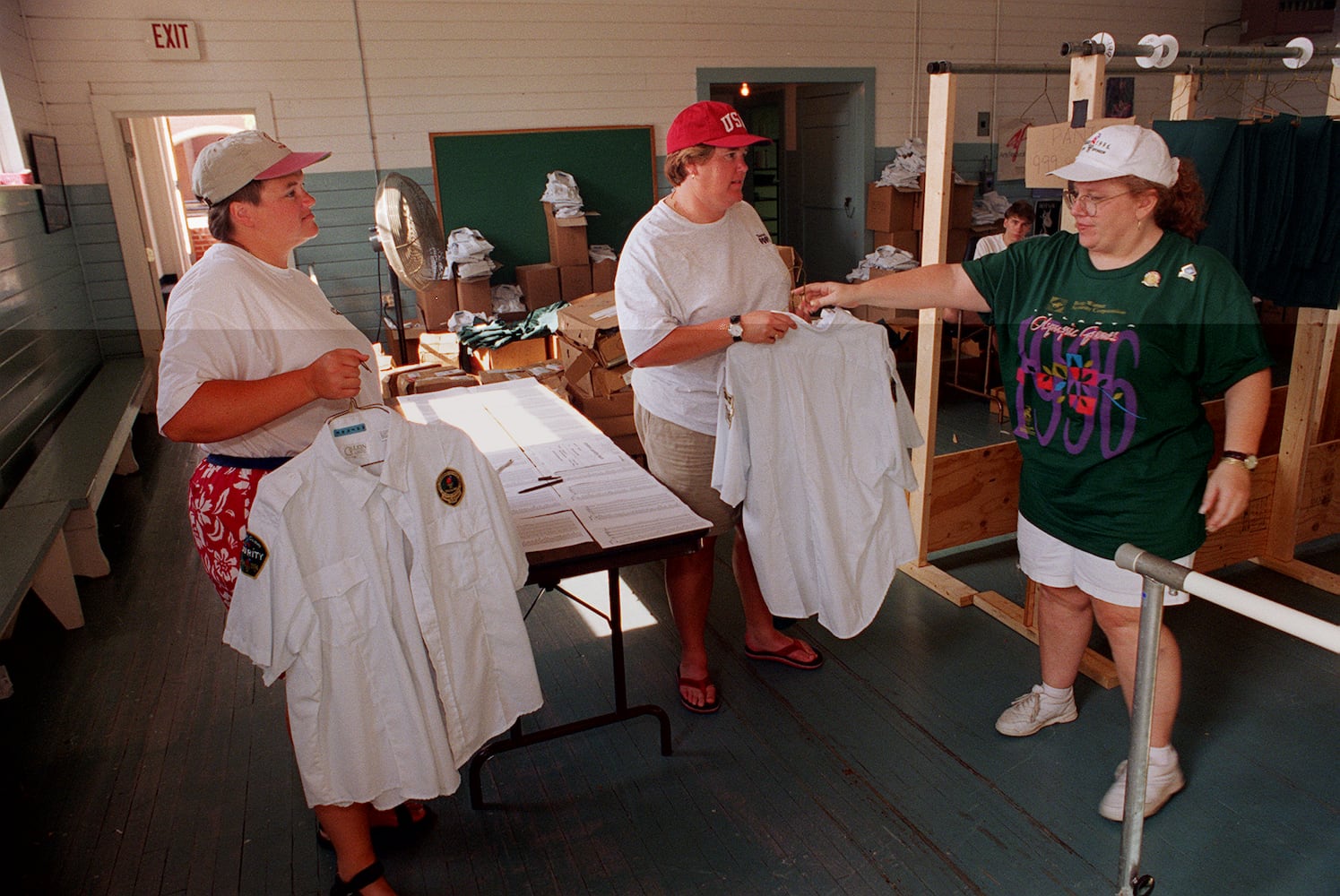So much is being written and said about the 20th anniversary of our Centennial Olympic Games that it reminds all of us who were a part of creating them just what a meaningful event it was.
Perhaps it will go down in history as one of the pillars on which our reputation is built. This I know for sure: The last defining moment for Atlanta prior to the 1996 Games was the city’s role in the Civil Rights Movement.
The only other image the world had of us was “Gone with the Wind”.
Twenty years later, our Games may be remembered as a shining moment for us all. But it will soon become easy to forget just how breathtaking this audacious accomplishment was. It’ll be easy to remember only the big, shiny parts: “It’s Atlanta;” opening ceremonies with Muhammad Ali; the heroic women’s gymnastics team; the magical moment when we won women’s soccer against all odds, and the wonder of the Olympic Torch Relay, which showed off Atlanta up close and personal to Americans for 16,700 miles across our country.
Our list of “biggests,” “firsts ” and records of all kinds are the envy of every other pretender city in the U.S. which wishes to reach out for a Summer Olympic Games of their own. Our reputation as a truly international city is now confirmed beyond any doubt.
As the years pass, however, living memories will become fewer, and the 1996 Atlanta Centennial Olympic Games will be known to future generations through the exhibits at the Atlanta History Center, or an occasional child’s question about why a park is named “Centennial Olympic Park”.
And Billy Payne will be viewed with the same distant status as Henry Grady and other titans on whose shoulders we stand, and whose statues we find around town.
And the 1996 Centennial Olympic Games will be remembered alongside of, and in the same fashion as the 1895 Atlanta Cotton States and International Exposition, the World’s Fair held 30 years after Atlanta had been burned to the ground in the Civil War. That, too, was an audacious endeavor, accomplished in the face of a nation which was disbelieving that we could pull it off.
The Atlanta Games was an intensely personal — and sometimes even painful — experience. For the men and women working to deliver the Games, every day from 1991 to 1996 became part of a giant countdown clock, and no detail could be overlooked, no matter how little time was left, or how little money we had.
And when times are that tough and you know that a skeptical world is watching, you mightily appreciate help that comes from whatever direction.
In our case, that help came from a dedicated cohort of Atlanta volunteers — ordinary citizens who are yet largely unknown by name. They cared about their sense of place, the reputation of their community, or the excitement of doing something that had never before been done.
The volunteers were great people who simply showed up to work — never asking for money or favors. They just wanted to contribute to something bigger than themselves, thus earning the right to say, “I was there.”
Such genuineness and selflessness of motivation should always be celebrated, and especially so here because it came in that time when we needed it the most.
We can only hope that volunteers’ stories will be passed down to their descendants through our great oral traditions. Perhaps mementos and photographs can be shared, and our volunteers can again swell with pride.
There’s an old saying, “If it’s fact, it ain’t bragging,’ ” and for most of the wonderful volunteers, their work was, in fact, legendary.
The world had no idea about Southern Hospitality until they came to Atlanta for the 1996 Olympic Games. They were, by and large, stunned — happily — by what they found.
And they witnessed it first from our ambassadors of warmth, charm and caring: Our corps of Olympic volunteers. It was the largest number of Olympic volunteers ever assembled. And the number has never been surpassed.
This wonderful team not only acted as perfect hosts; their work was the very foundation of our effort to stage the Games themselves. Theirs was a huge undertaking, and they lifted many burdens off the shoulders of a hard-working, dedicated Olympic staff.
Our volunteer team totaled 47,466 people (not including the Football Cities and other non-Atlanta venues.) Altogether, the number would easily exceed 50,000 – or eight times the number of paid staff.
Most people don’t know that the Olympic Volunteer program actually spanned four years as a part of The Olympic Force consisting of 1,800 organizations and including 750,000 people across the state.
Among other accomplishments, in 1992, they collected 150,000 pounds of food and a tractor-trailer full of new toys. In 1995, more than 10,000 volunteers cleaned and repaired parks all over Georgia.
During the Games, volunteers staffed 237 locations, from parking lots to Olympic venues. In some cases, they directed traffic when law enforcement was not available. At the Olympic Village, there were 4,415 volunteers. Village volunteers included 659 physicians, 767 athletic trainers and 518 EMTs and paramedics. In Security, there were 10,963 volunteer law enforcement officers from 46 countries.
At the airport welcome center, volunteers processed more than 75,000 people for accreditation and handled more than 7,000 pieces of luggage an hour. In addition, they handled over 100,000 arriving and departing Olympic family members and sponsor guests. In our torch relay of 16,700 miles, volunteers were involved in every mile.
Never was I prouder of our volunteers, however, than on the Saturday morning after the bomb. Circumstances were uncertain, but these men and women showed guts and determination in coming to work. Along with their grace under pressure, they were committed that no evildoer would ever dampen their resolve to make these the best games ever.
About the Author
Keep Reading
The Latest
Featured
